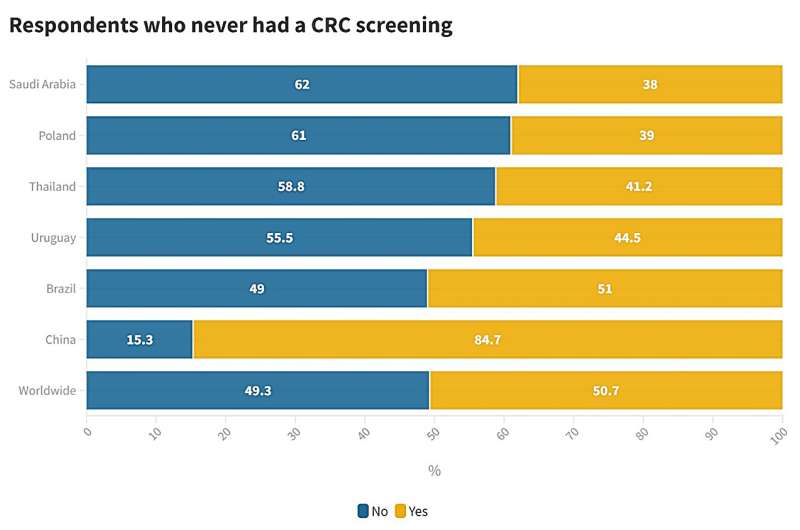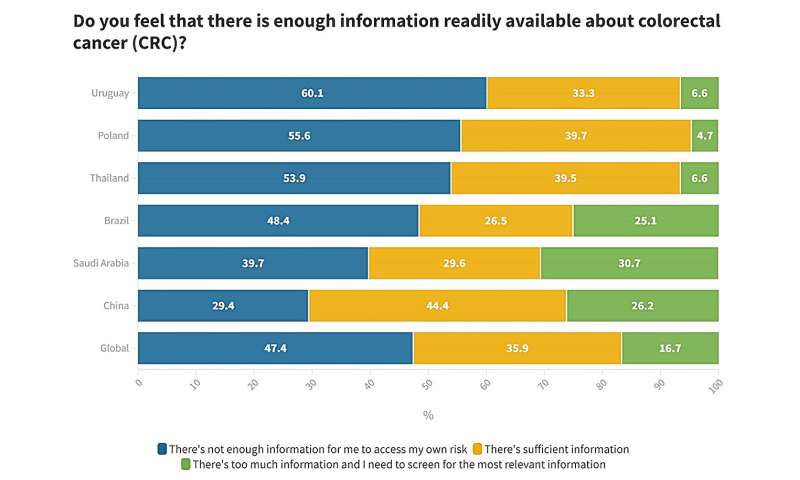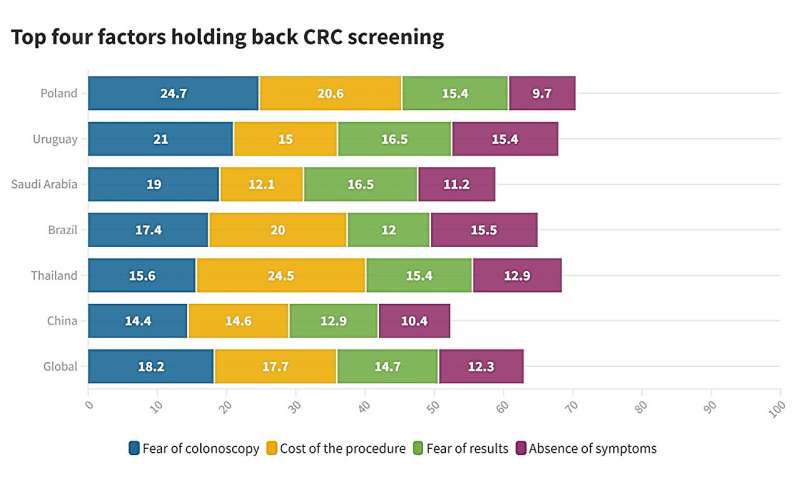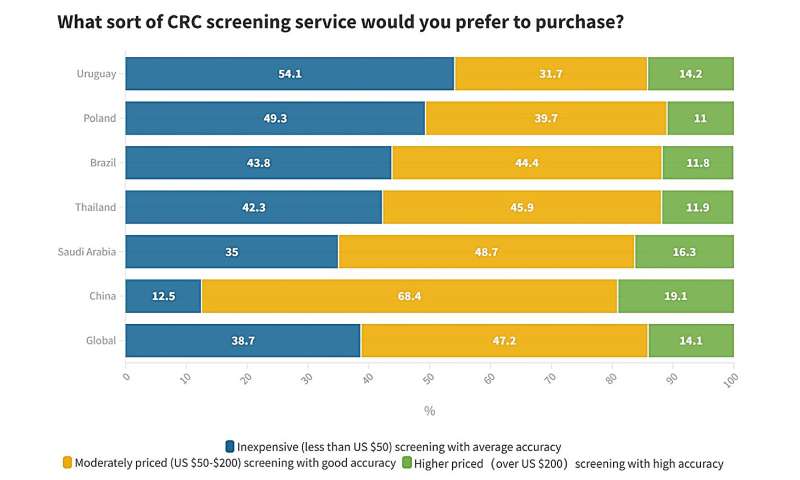This article has been reviewed according to Science X's editorial process and policies. Editors have highlighted the following attributes while ensuring the content's credibility:
fact-checked
proofread
The current status of colorectal cancer in Thailand

According to research led by Prof. Varut Lohsiriwat, Professor of Surgery, Division of General Surgery (Section of Colorectal Surgery) of Siriraj Hospital, at Mahidol University, colorectal cancer (CRC) is the third most common cancer in Thailand, accounting for 11% of the cancer burden. It is the only malignancy with an increased incidence in both genders in the country.
By 2040, the burden of CRC is projected to increase to 3.2 million new cases and 1.6 million deaths per year representing a 66% and 71% rise in new cases and deaths respectively relative to 2020.
To better address the global burden of CRC and reduce its impact, BGI Genomics has launched the second edition of its global CRC awareness report, covering 1,938 respondents from Brazil (306), China (367), Poland (300), Saudi Arabia (300), Thailand (362), and Uruguay (303):
CRC screening gaps vary globally: A significant 58.8% of Thai have never had a CRC screening, higher than the global average of 49.3%. In addition, 54% of Thai point out that there is not enough information about CRC available.
Preference for fecal testing over colonoscopy: Although colonoscopies are more recognized (33.4%), fecal tests at health care facilities are preferred (31.8%), reflecting a trend towards non-invasive methods.
-

Do you feel that there is enough information readily available about CRC? Credit: BGI Genomics -

Top four factors holding back CRC screening. Credit: BGI Genomics -

What sort of CRC screening service would you prefer to purchase? Credit: BGI Genomics
Professor Varut Lohsiriwat suggests, "Doctors usually will explain the pros and cons for the patient in three to five mins about different screening method. But in the end, it's the patients that makes the decision and the best screening method is the one that accepted by the patients."
Cost as the determinant in screening choices: Cost plays a crucial role in individuals' decisions regarding CRC screening in Thailand. Thailand (24.5%) and Poland (20.6%) indicate the most concern about costs, with 88.2% of Thai preferring either moderately priced options with good accuracy or inexpensive options with average accuracy.
Medical advice and family history drive CRC screening: Given that doctor's recommendations (29.1%) are the biggest single factor that makes Thai individuals more likely to undergo screening for CRC without any symptoms. Additionally, Thai with a family history of CRC are more proactive in screening (62.8%), compared to the general population (33.4%). This points to the critical role of health care professionals and familial awareness in encouraging screening.
For more region-level comparisons, access the full BGI Genomics 2024 State of CRC Awareness Report.
All data involved in this report come from the results of an online survey project conducted by BGI Genomics. It only surveys awareness related to colorectal cancer and does not involve personally identifiable data.
More information: Report: www.bgi.com/global/news/bgi-ge … cer-awareness-report





















